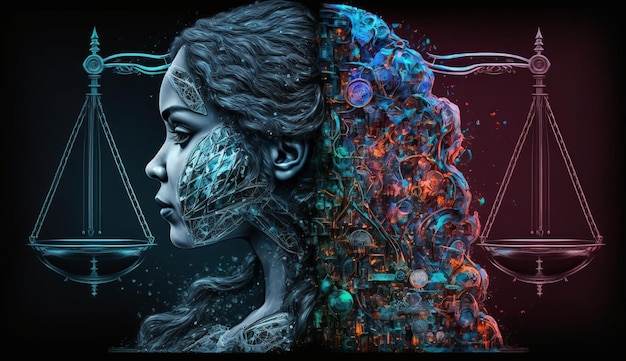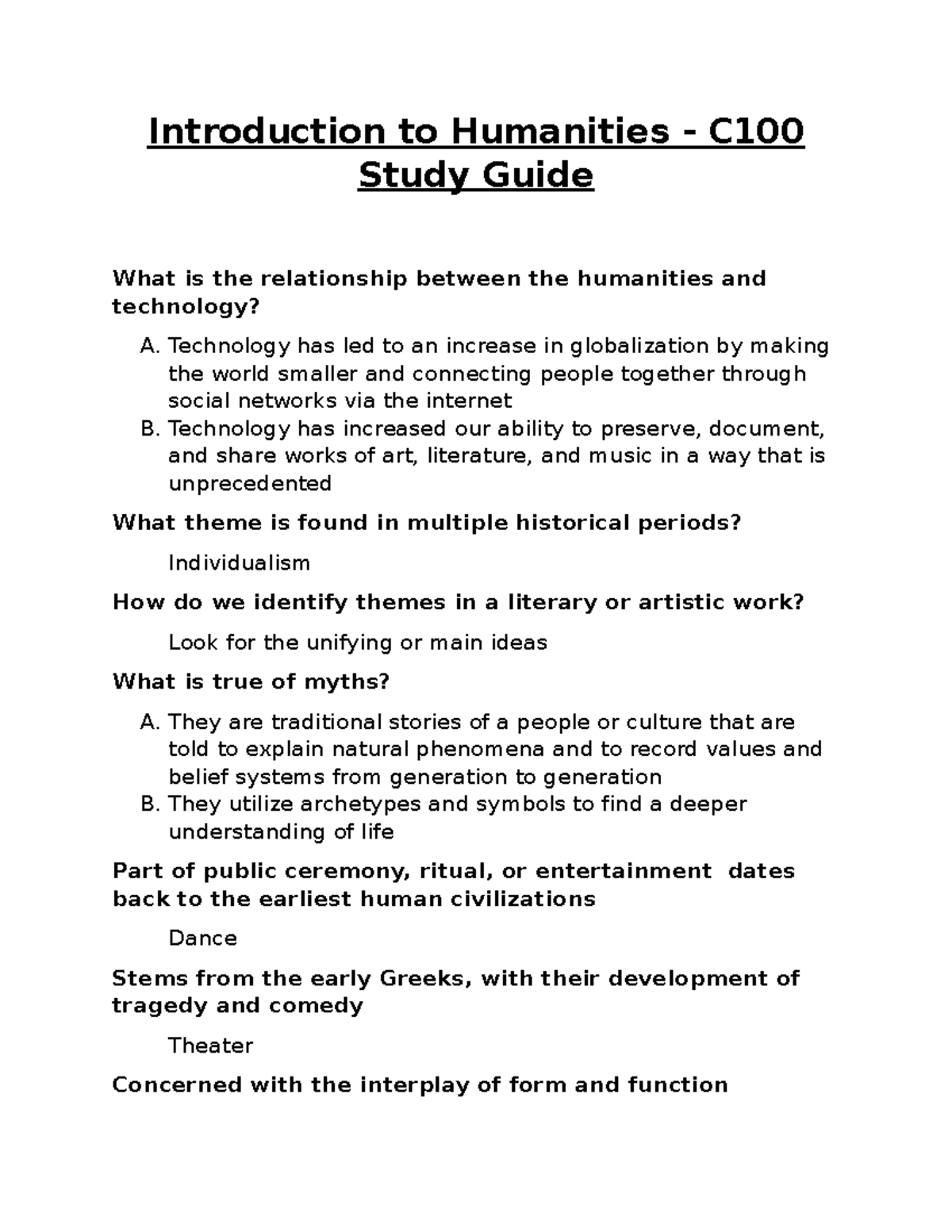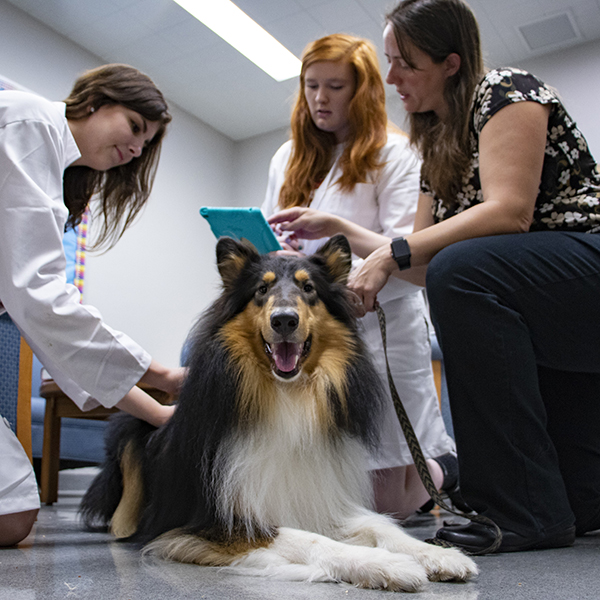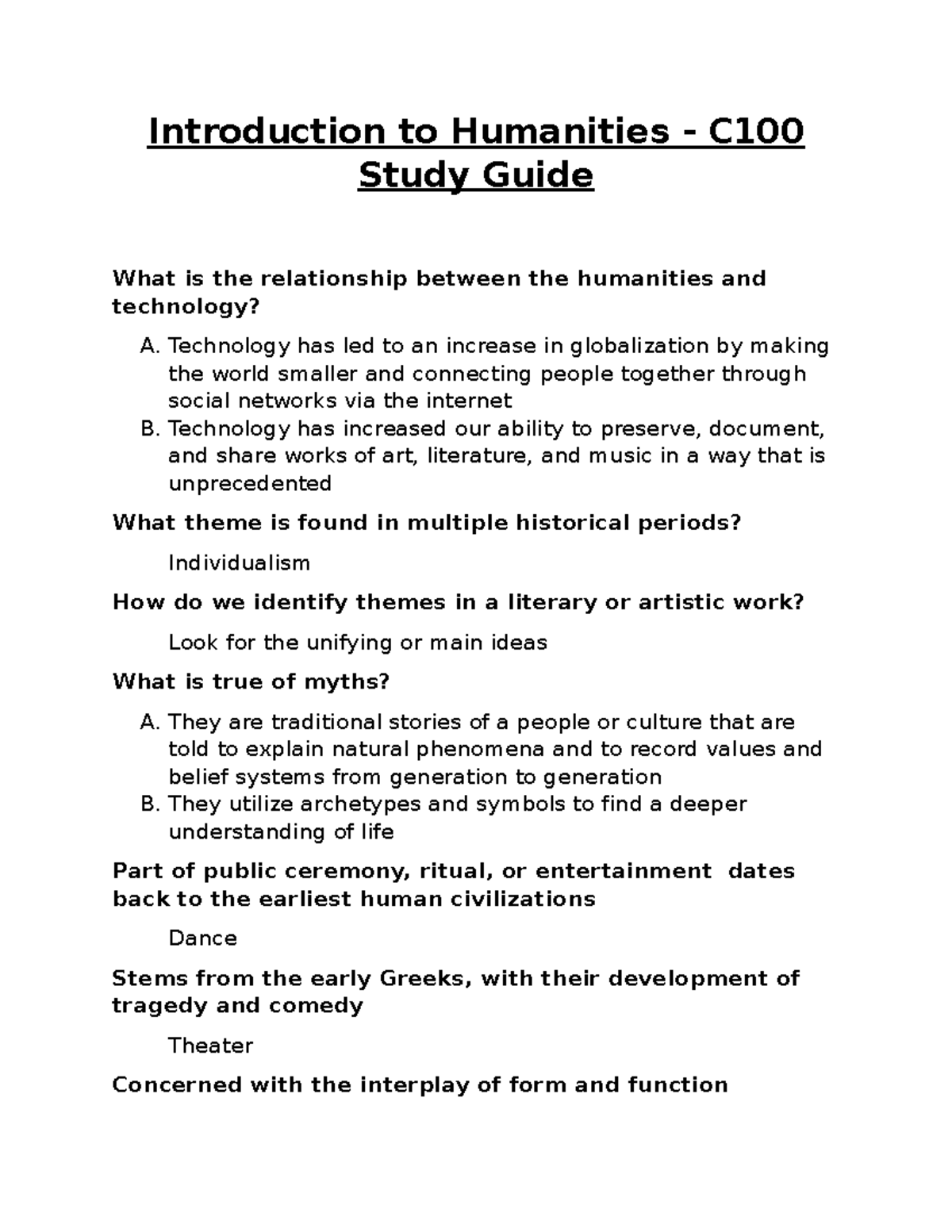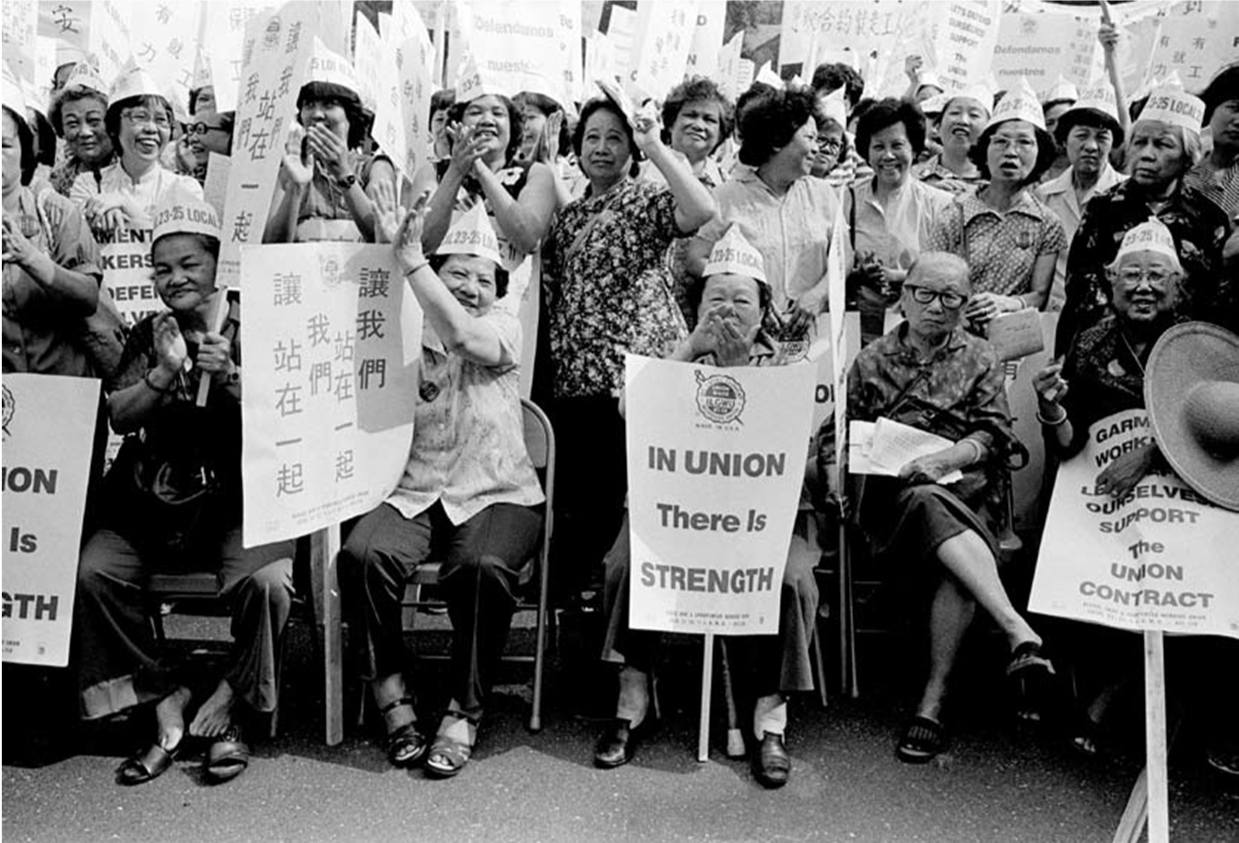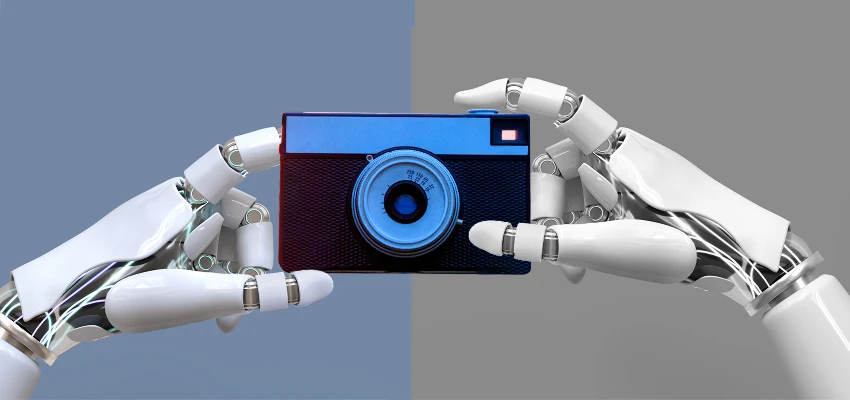Artificial Intelligence (AI) and social justice are at the forefront of transformative discussions regarding the future of technology in society. In her recent Tanner Lectures, Ruha Benjamin, a prominent sociologist, emphasizes the critical intersection between these two topics, arguing that the technology elite’s visions often serve their interests rather than the common good. She challenges the notion that advancements in AI inherently promote social justice, highlighting instances where AI applications perpetuate oppression, such as biased facial recognition systems. Benjamin calls for a reimagining of human values and AI, asserting that instead of accepting algorithmic decisions as neutral, we must scrutinize the sociological implications of these technologies. Ultimately, she encourages a broader dialogue that incorporates diverse perspectives to ensure that the future of AI aligns with the pursuit of equitable outcomes for all.
The relationship between artificial intelligence and equity raises essential questions about how emerging technologies shape societal structures. In her thought-provoking lectures, Ruha Benjamin discusses the profound implications of integrating AI within the framework of fairness and ethics, positing that innovations in machine learning and neural networks should not merely prioritize efficiency. Instead, she advocates for a conscientious approach that intertwines the principles of sociology and technology, urging stakeholders to consider the historical context of these tools. By fostering a discourse around inclusivity and human values in AI, we can cultivate a future where technological advancements serve as a catalyst for true social justice.
The Ethical Implications of AI in Society
The intersection of artificial intelligence and human values presents profound ethical questions. Ruha Benjamin highlights the concerns surrounding AI technologies that are often hailed as efficient and progressive. However, these technologies frequently perpetuate systemic inequalities, especially for marginalized groups. By promoting algorithmic decision-making as neutral, the industry obscures the power dynamics that influence technology’s development and application. As Benjamin notes, this reliance on mathematical reasoning can reinforce historical oppressions reminiscent of practices such as eugenics, showcasing that data-driven decision-making in AI cannot exist in a vacuum devoid of social context.
The ethical implications of AI must be examined through a sociological lens that accounts for broader social narratives. Benjamin emphasizes that technology is not an independent entity but rather a social construct shaped by the values and interests of its creators. This recognition calls for a diverse range of voices in technological development—especially those representing communities that are often marginalized. The conversation around AI and social justice should not only focus on the problems AI aims to solve but also challenge whose voices are prioritized in these discussions.
Ruha Benjamin’s Vision for a Just AI Future
Ruha Benjamin proposes a future where AI serves humanity’s collective good rather than primarily benefiting tech elites. Her vision emphasizes the need for creativity and imagination in reshaping AI technologies. This means pushing back against the prevailing narratives that often depict tech innovations—such as superintelligence or Mars colonies—as the ultimate solutions to human challenges, while neglecting essential public goods like education and healthcare. By reframing the discourse surrounding AI, Benjamin encourages a holistic approach that values social creativity alongside technological advancements.
In her lectures, Benjamin invites audiences to rethink the purpose of AI technologies, promoting a paradigm shift towards inclusive and equitable solutions. She stresses the importance of integrating arts and humanities into technological discussions, which can provide critical insights into the social impact of AI. This multi-faceted approach to AI not only fosters innovation but also ensures that future developments align with human values, reflecting a more just society. By inspiring both critical thought and imaginative possibilities, Benjamin envisions a future where technological progress holistically uplifts humanity.
The Role of Social Justice in Technology Development
Social justice forms a crucial framework for evaluating technological advancement and its impact on society. According to Ruha Benjamin, the deployment of AI technologies often exacerbates existing inequalities, making it essential for advocates to incorporate social justice principles in technology development. This means recognizing that the current trajectory of AI, often driven by corporate agendas, needs reevaluation through the lens of fairness and equity. The planning and execution of new technologies should include considerations for their societal consequences, ensuring that marginalized communities do not bear the brunt of misaligned technological progress.
By embedding social justice into the core of technology discussions, innovators can challenge the conventional narrative that persists in viewing technology as a panacea. Benjamin advocates for a collective approach that prioritizes ethical considerations and places human welfare at the forefront of technological pursuits. Such a shift would require diverse stakeholders to actively define the parameters of AI development, ensuring that the voices and experiences of those most affected by these technologies are included in the process.
Challenging the Dystopian Narrative of AI
The prevailing narrative surrounding AI often leans towards a dystopian future, fueled by visions of superintelligence and enhanced surveillance. Ruha Benjamin counters this perspective by arguing that the future does not need to be bleak. Instead, she encourages us to imagine a world where AI is harnessed for collective empowerment rather than elite control. By dismantling the fear around AI, advocates like Benjamin open the door for imaginative solutions that prioritize community needs and sustainable development, inviting everyone to partake in shaping a positive future.
Challenging dystopian fears requires reexamining who is at the table during discussions about technology. Benjamin calls for the inclusion of voices from the arts and humanities to offer diverse insights into the human experience. By fostering dialogue that includes various perspectives, we can collectively envision inspirations beyond current paradigms. This radical imagination can lead to innovative approaches that reject oppression and redefine societal values, thus steering the narrative towards an empowered, inclusive future.
Fostering Inclusive Conversations on AI and Technology
Inclusive conversations about AI and technology enable the agglomeration of diverse perspectives, crucial for equitable outcomes. Ruha Benjamin emphasizes that populations affected by AI should be integral to discussions about its development. These conversations should extend beyond technical aspects to encompass societal values, cultural nuances, and ethical implications. Recognizing the voices of historically marginalized communities allows for a richer understanding of how technology impacts social structures, bringing a critical lens to what many consider progress.
Moreover, fostering genuine dialogue necessitates breaking down barriers that often prevent underrepresented voices from contributing to these discussions. As we navigate a rapidly evolving technological landscape, it becomes imperative to cultivate environments where everyone feels empowered to share their experiences and insights. By actively listening to diverse perspectives, stakeholders can not only enhance technological outcomes but also work towards building a just future that prioritizes social equity.
AI’s Impact on Public Good and Access to Resources
AI technologies are often heralded as tools for improving efficiency and accessibility in various sectors, including healthcare, transportation, and education. However, this optimism can blind us to the inequalities that may arise from their implementation. Ruha Benjamin highlights the serious implications associated with these technologies, indicating that they can exacerbate access disparities rather than alleviate them. For instance, algorithmic decision-making in healthcare can lead to unequal access to necessary treatments, disproportionately affecting marginalized groups.
Addressing AI’s impact on public good requires a critical examination of both the technology itself and its broader societal implications. Benjamin argues for the necessity of integrating ethical considerations into the design and deployment of AI systems, ensuring they serve the public interest rather than narrow private interests. This integrated approach would empower communities, promote equity, and facilitate access to vital resources, thereby reaffirming the role of technology as a beneficial force in society.
Reimagining AI Technologies for a Better Future
Ruha Benjamin calls for a comprehensive reimagining of AI technologies in light of their societal impact. Instead of merely optimizing existing systems for efficiency, Benjamin advocates for an imaginative approach that considers the broader implications of AI on human lives. This would involve a departure from treating technological development as an end in itself, toward a framework that prioritizes human values and communal well-being. By envisioning a future devoid of oppressive structures, we can redefine the purpose and trajectory of technology.
This radical reimagination fosters a culture of inquiry and creativity, encouraging stakeholders to interrogate existing norms and practices. By prioritizing creativity in technology development, we can create solutions that resonate with human dignity and promote equality. Benjamin’s insistence on prioritizing social context in technology allows for a future powered by imagination rather than fear, which is essential for creating a more just and equitable world.
Addressing Misconceptions in AI Technology
A significant barrier in discussions about AI technology is the prevalence of misconceptions that lead to misunderstanding its potential and risks. As Ruha Benjamin points out, viewing AI through a lens solely of technological advancement overlooks the nuanced social implications that accompany its implementation. These misconceptions can result in an oversimplified belief that AI is inherently beneficial or neutral. Instead, we must acknowledge that AI systems are not just mathematical models but are deeply entwined with societal values and priorities.
Clarifying these misconceptions involves engaging with a variety of stakeholders, including technologists, ethicists, and community leaders, to foster a more rounded understanding of AI. Such engagement can demystify technology and enlighten the public about the importance of ethical considerations in its development. Ultimately, fostering a clearer understanding of AI will enable more informed discussions, paving the way for constructive strategies that serve the greater good and uphold social justice.
The Intersection of Sociology and AI Development
The intersection of sociology and AI development is pivotal in understanding how technologies shape and are shaped by social structures. Ruha Benjamin emphasizes that incorporating sociological perspectives into AI development can illuminate the social dynamics at play, revealing how technology can perpetuate or challenge social inequalities. By acknowledging that technology does not exist in a social vacuum, stakeholders can comprehend the full spectrum of AI’s impact on communities, facilitating more responsible innovation that aligns with social justice ideals.
Integrating sociological insights into technology not only enriches the development process but also enhances ethical decision-making. By considering historical contexts and social dynamics, developers can create AI applications that prioritize human welfare and equitable access, cultivating a technology landscape that reflects shared values and aspirations. This integration is crucial for envisioning technological futures that are inclusive, equitable, and beneficial for all members of society.
Frequently Asked Questions
How can AI technologies promote social justice according to Ruha Benjamin?
Ruha Benjamin argues that AI technologies can promote social justice by prioritizing human values and cultural context in their development. She emphasizes that without understanding the societal implications and history of these technologies, they risk reinforcing existing inequalities and oppression. Advocating for a more inclusive approach can help ensure AI serves the common good.
What are the risks of AI-powered futures in terms of social justice?
Ruha Benjamin warns that AI-powered futures often prioritize efficiency over equity, leading to increased oppression for marginalized groups. Examples include biased facial recognition software resulting in false arrests and automated systems that unfairly determine healthcare access. She stresses the need for critical engagement with these technologies to avoid replicating historical injustices.
Why does Ruha Benjamin call for a reimagining of AI systems in relation to social justice?
Benjamin advocates for reimagining AI systems because she believes current approaches often overlook critical social contexts. Instead of merely improving existing systems, she encourages envisioning a future where technology aligns with ideals of equity and justice. This involves dismantling mental barriers and creatively envisioning alternative futures without systemic oppression.
How does Ruha Benjamin suggest integrating arts and humanities into the development of AI?
Benjamin suggests that integrating arts and humanities into AI development is crucial for addressing social justice. She believes that creative inquiry can foster a deeper understanding of the ethical and societal impacts of technology, encouraging diverse perspectives that go beyond technical expertise and prioritize human values.
What role do billionaire tech leaders play in shaping the future of AI and social justice according to Ruha Benjamin?
According to Benjamin, billionaire tech leaders often shape AI narratives to serve their self-interest, presenting their visions as benevolent while potentially exacerbating inequalities. She argues that we should critically assess their influence and advocate for a tech landscape that genuinely prioritizes social justice rather than profit.
What is the significance of ‘deep learning’ in the context of AI and social justice?
Benjamin critiques ‘deep learning’ in AI as being overly focused on computational depth without considering social and historical contexts. She argues that true depth requires understanding the societal impact of AI, especially regarding marginalized groups, to prevent technological solutions from perpetuating old injustices.
How does Ruha Benjamin envision a future without oppressive AI systems?
Benjamin envisions a future free from oppressive AI systems by encouraging creative thinking and questioning current paradigms. She calls for imagining a world where technology serves communal needs and dismantles barriers like policing and surveillance, fostering an inclusive environment that promotes social justice.
What changes does Ruha Benjamin propose for the integration of technology in society?
Benjamin proposes that society needs to rethink how technology is integrated, moving away from solely technical development towards a holistic approach involving diverse voices from the arts and humanities. This would help ensure that technology, including AI, aligns with values of equity and social justice.
| Key Points |
|---|
| Ruha Benjamin argues for envisioning a radically different future in AI and social justice. |
| Tech elites often present AI technologies as altruistic while being driven by self-interest. |
| AI technologies can increase oppression rather than alleviate it, impacting marginalized groups adversely. |
| Computational depth in AI without social and historical context is inadequate and dangerous. |
| There is a need for diverse types of knowledge, not just technical expertise, in technological development. |
| Encouragement to prioritize creativity and imagination through the arts and humanities in addressing societal issues. |
| A vision of a world free from borders, policing, and surveillance should be fostered. |
Summary
AI and social justice are crucial concepts that highlight the need for collective imagination in shaping technology’s role in society. Ruha Benjamin’s work emphasizes the importance of critiquing and rethinking the relationship between technological advancement and its societal impacts. As we envision a future where AI serves humanity equitably, we must confront the biases and injustices inherent in current systems. By integrating diverse knowledge and prioritizing creativity, we can cultivate innovative solutions that not only mitigate harm but also transform our social landscapes for the better.
